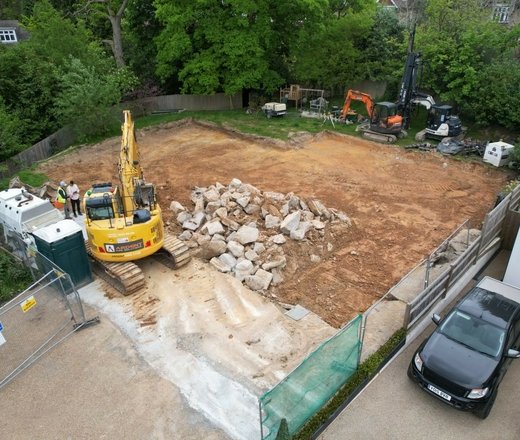Most of us move several times during our lives. These moves can be for a variety of reasons but few can be as tricky – both emotionally and practically – as downsizing in later adult life. We take a look at some of the considerations that may prompt a move, how you can make that move easier (whether for yourself or for a family member), and what you might look for in a new home.

Perhaps your home seems too large now that your children have long since left home. Maybe your spouse or partner has died and you feel ready for a new chapter in a new home. Possibly you are finding the cost of maintaining your current home too difficult to support now you’re retired or perhaps you’d like to free up funds to assist younger family members onto the property ladder. Whether your reason for moving appears in this list or whether it’s prompted by something else altogether, it’s important that you know why you want to move and are certain that any concerns around remaining in your current home cannot be alleviated without needing to move. A house move that is framed in a positive way is more likely to result in a transaction that is emotionally, financially and practically, satisfactory.
Consider what (and who) you’re moving away from
Particularly if you’ve lived in your current home for a long time, you may well have a strong social network, local hobbies and amenities, and a general lifestyle that you value very much. This may include nearby family members or close friends. Ask yourself how you will cope away from this network.
Consider where, what and who you’re moving to
In many ways, this can be both the easiest and the most complicated question. You may be moving to be closer to family. Equally, you may intend to move to a destination that you’re less familiar with. Holidaying in a place, even more than once and for an extended period of time, is not the same as being a permanent resident. Do you know about local amenities, such as doctors’ surgeries and public transport? How easy do you think it would be to build a social life in the new location? Is it close to family or friends, or is it convenient for them to visit you there? What do you think it would be like living there as you age and perhaps as your mobility or mental faculties decline?
Think about the cost implications
There’s no doubt about it: moving house is expensive. Even if several years (or even decades) of rising sold property prices mean that you have a metaphorical pot of gold to sell, it’s essential to remember all the associated costs of moving. Legal fees, storage and moving costs, and, assuming you’re making an onward purchase, stamp duty and search fees all add up to a hefty sum. You may also need to account for a difference in the cost of living in your new home. If you’re fortunate, council tax may be lower, but don’t forget to consider factors such as energy usage and efficiency (and remember that relying on LPG, oil-fired heating and septic tanks can add to costs), and transport costs.
Type of property
If you have decided to downsize, you’ll eventually need to focus on the type of property you want to buy. Sold property prices and, correspondingly, what you hope to get for your current home may dictate your purchase to some extent. However, whether you dream of a small rural idyll, a city centre “lock up and leave” flat, a seaside cottage, a practical bungalow or a luxury apartment in an over-55s complex, it is sensible to do two things. First, assess the practicality of your choice. Moving is a big undertaking and not one you’ll necessarily want to repeat in a hurry, While your downsizing does not have to represent your “forever home”, it ought to be capable of accommodating you – at least for a while – as your needs change. Secondly, even if you are certain you know what you want, make sure you have investigated the alternatives. For example, a bungalow on a bus route into town might be your number one choice, but have you weighed it up against a ground floor flat closer to town? You may also want to pay attention to property features such as downstairs toilets and bathrooms, wet rooms, and potential for stair lifts. Not all of these are exciting or joyful considerations but, properly assessed, they can add a great deal to your enjoyment of your new home.
Do you need to declutter?
Regardless of age, many people have a tendency to hang on to far more possessions than they can sensibly use or enjoy. Whether or not you embrace “Kondo-ism” and choose to keep only those belongings that “spark joy”, a planned house move is an ideal time to assess what you own and what, if anything, you could get rid of. This doesn’t – and shouldn’t – automatically have to mean multiple trips to the tip. Charity shops are an obvious repository for unwanted possessions, but do make sure they’re clean and serviceable. Some charities, such as the British Heart Foundation, may also take furniture, although items such as sofas and armchairs must carry a current fire safety label. As an alternative or in addition to charity shops, Women’s Aid often welcomes donations that women setting up home from scratch can use. Animal shelters often welcome old towels and bedding. And, of course, perhaps you have younger relatives or friends setting up their first home who would be grateful for some furniture, kitchenware or similar.
Alternatives to downsizing
Equity release is an increasingly popular alternative to downsizing for those whose primary aim is to release additional funds to enable them to enjoy their retirement. It can also make the difference between having to move because you can no longer cope with a property (cleaning it, doing the garden etc.) and being able to stay because you can now afford to pay someone to take on those tasks. However, it’s important to take specialist advice and not to rush into a decision if you’re considering equity release.
Having considered your motivations and options, you may decide that you’re not ready to downsize. This is fine: after all, you can change your mind at any time in the future, but reversing a downsizing decision is usually considerably harder.
Source:
Net House Prices
Market your property with Maddisons Residential
For many, the first point in their house moving journey, is to understand the value of their current home. Whether you want a quick, instant, online indication, or a more robust property specific and individual valuation, we would be delighted to help.





